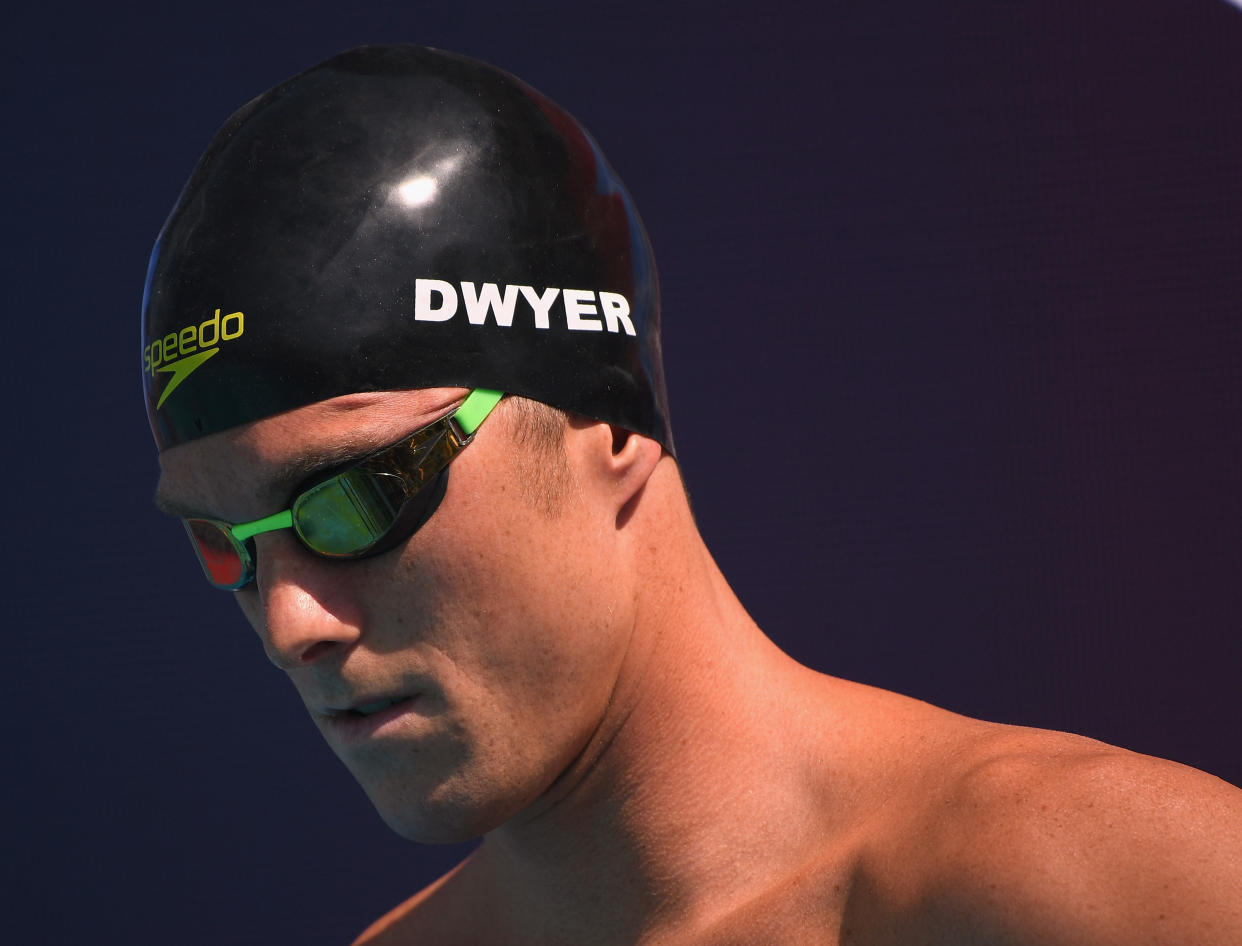Olympic gold medalist Conor Dwyer retires after 20-month ban for doping violation

Two-time Olympic gold medalist Conor Dwyer was officially banned for 20-months after an independent panel determined he had testosterone pellets inserted into his body, the United States Anti-Doping Agency announced on Friday.
Dwyer won gold medals at the 2012 Olympics in London and the 2016 Olympics in Rio de Janeiro, both in the men’s 200-meter freestyle relay, and won a bronze medal in the 200-meter freestyle in 2016. He failed three drug tests between Nov. 15 and Dec. 20 last year, per the report.
His ban is retroactive to Dec. 21, 2018, which will keep him ineligible through the 2020 Olympics in Tokyo next summer.
“It’s frustrating that Mr. Dwyer did not take advantage of this support, and hopefully, this case will convince others to do so in order to protect fair and healthy competition for all athletes,” USADA CEO Travis Tygart said.
The pellets, per the Associated Press, were inserted into skin tissue near his hip at his nutritionist’s suggestion. His doctor reportedly contacted a U.S. Olympic and Paralympic Committee official beforehand, who said the treatment was allowed, though neither the doctor nor his nutritionist followed up with the USADA.
Per the report, Dwyer’s sentence was partially reduced because he argued the pellets were not used to improve his performance. Instead, he said, they were used to mitigate “health concerns which were causing him to have a high degree of stress.”
Dwyer last competed at the 2018 Pan Pacific Championships. He qualified there for the 2019 world championships, however was later removed from the team. The 30-year-old holds five gold medals at the world championships — winning the 200-meter freestyle relay from 2011-2015 — and has two silver medals and a bronze.
Shortly after the ruling, Dwyer announced his retirement in a statement on social media.
“I am very pleased that the Arbitration Panel has acknowledged that I made a honest but unfortunate mistake in regards to my medical treatment, and I would never knowingly violate anti-doping rules,” Dwyer said. “My doctor assured me that the recommended treatment was allowable and that the United States Olympic Committee had approved the treatment before I agreed to it. Absent of these assurances, I never would have agreed to this medically necessary treatment.
“Regardless of the results of the arbitration ruling, I have decided to retire from swimming to pursue other professional interests. It was an honor to represent my country alongside my teammates with the support of my coaches, family and friends. I appreciate all of the opportunities I have been given and look forward to the next chapter.”
More from Yahoo Sports:

